Shows
 Legal Face-offElcox on Bryan Kohberger case, Meyler and Barrett on pardon power, Hooper on anti-hazing bill, Martini and Susler on resilience, and much more
Elcox Law Founder Edwina Elcox discusses the latest in the Bryan Kohberger case.
Stanford Law Professor Bernadette Meyler and St. John’s University School of Law Professor John Barrett join Legal Face-Off to discuss the use of pardons by Biden and Trump.
Oakland Community Health Network Chief Administrative Officer and Chief Compliance Officer Bernard Hooper discusses the first federal anti-hazing bill.
National Material L.P. Associate General Counsel David Susler joins Rich and Tina to discuss David and Tina’s latest “Inside Out” column in Chicago Lawyer magazine regarding the importance of resilience in pract...2025-02-0400 min
Legal Face-offElcox on Bryan Kohberger case, Meyler and Barrett on pardon power, Hooper on anti-hazing bill, Martini and Susler on resilience, and much more
Elcox Law Founder Edwina Elcox discusses the latest in the Bryan Kohberger case.
Stanford Law Professor Bernadette Meyler and St. John’s University School of Law Professor John Barrett join Legal Face-Off to discuss the use of pardons by Biden and Trump.
Oakland Community Health Network Chief Administrative Officer and Chief Compliance Officer Bernard Hooper discusses the first federal anti-hazing bill.
National Material L.P. Associate General Counsel David Susler joins Rich and Tina to discuss David and Tina’s latest “Inside Out” column in Chicago Lawyer magazine regarding the importance of resilience in pract...2025-02-0400 min Stanford LegalThe Presidential Pardon Power, from Biden and Trump to Ancient KingsPresidential pardons are in the headlines again after President Joe Biden’s pardon of his son Hunter. But the vast majority of presidents have used this awesome power, which was enshrined in the Constitution at the founding of the country and dates back to 7th Century English monarchs. What are the issues at play with modern presidential pardons? What does history tell us about this practice? Our guest this week is Stanford Law Professor Bernie Meyler, a scholar of British and American constitutional law and of law and the humanities and author of the book Theaters of Pardoning. She joins Pam...2024-12-0626 min
Stanford LegalThe Presidential Pardon Power, from Biden and Trump to Ancient KingsPresidential pardons are in the headlines again after President Joe Biden’s pardon of his son Hunter. But the vast majority of presidents have used this awesome power, which was enshrined in the Constitution at the founding of the country and dates back to 7th Century English monarchs. What are the issues at play with modern presidential pardons? What does history tell us about this practice? Our guest this week is Stanford Law Professor Bernie Meyler, a scholar of British and American constitutional law and of law and the humanities and author of the book Theaters of Pardoning. She joins Pam...2024-12-0626 min Karen ContiAn in-depth look at this week’s ruling on barring firearms for domestic abusers
Dr. Bernadette Meyler, a Law professor at Stanford, joins Karen Conti to talk about this week’s Supreme Court decision to bar domestic violence perpetrators from possessing firearms and how this decision might affect the constitutionality of the law used to convict Hunter Biden.
https://serve.castfire.com/audio/5229249/5229249_2024-06-23-202049.64kmono.mp3
Significance of the Emancipation Proclamation and Juneteenth
2024-06-2400 min
Karen ContiAn in-depth look at this week’s ruling on barring firearms for domestic abusers
Dr. Bernadette Meyler, a Law professor at Stanford, joins Karen Conti to talk about this week’s Supreme Court decision to bar domestic violence perpetrators from possessing firearms and how this decision might affect the constitutionality of the law used to convict Hunter Biden.
https://serve.castfire.com/audio/5229249/5229249_2024-06-23-202049.64kmono.mp3
Significance of the Emancipation Proclamation and Juneteenth
2024-06-2400 min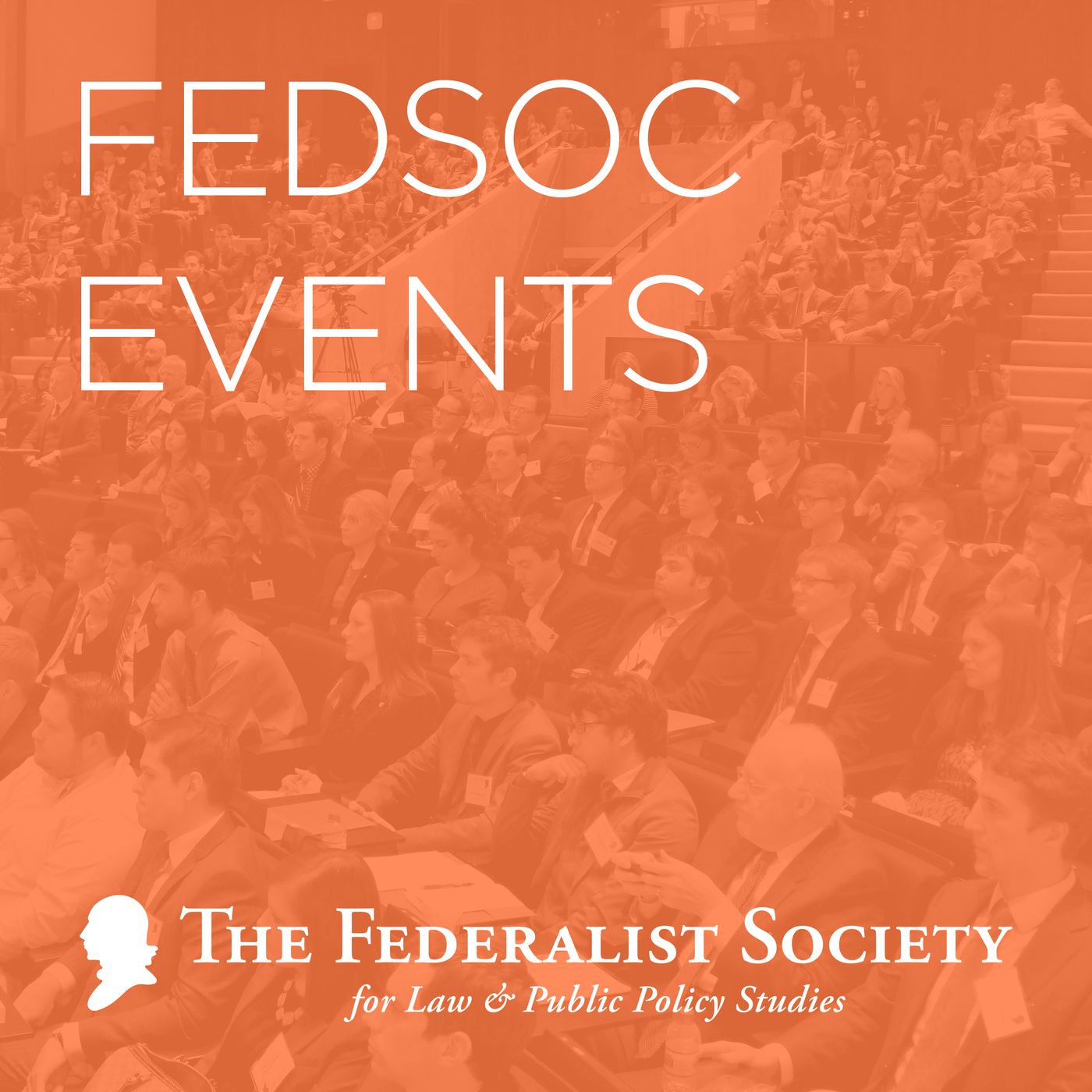 FedSoc EventsShowcase Panel I: Roundtable: Originalism on the GroundTrying to sort out what originalism means in practice requires integrating insights from all levels of the legal system, from academicians (both legal and historical), lawyers (from private practice, public interest, business, and government), and the bench (both trial and appellate and both state and federal). In this Roundtable, participants representing many of those elements of the legal culture offer insights on the current state of originalism in legal practice. Is there an identifiable "legal culture" to which originalism can be applied? If so, what should lawyers be doing that they are not doing? What should academics be doing that...2023-11-172h 11
FedSoc EventsShowcase Panel I: Roundtable: Originalism on the GroundTrying to sort out what originalism means in practice requires integrating insights from all levels of the legal system, from academicians (both legal and historical), lawyers (from private practice, public interest, business, and government), and the bench (both trial and appellate and both state and federal). In this Roundtable, participants representing many of those elements of the legal culture offer insights on the current state of originalism in legal practice. Is there an identifiable "legal culture" to which originalism can be applied? If so, what should lawyers be doing that they are not doing? What should academics be doing that...2023-11-172h 11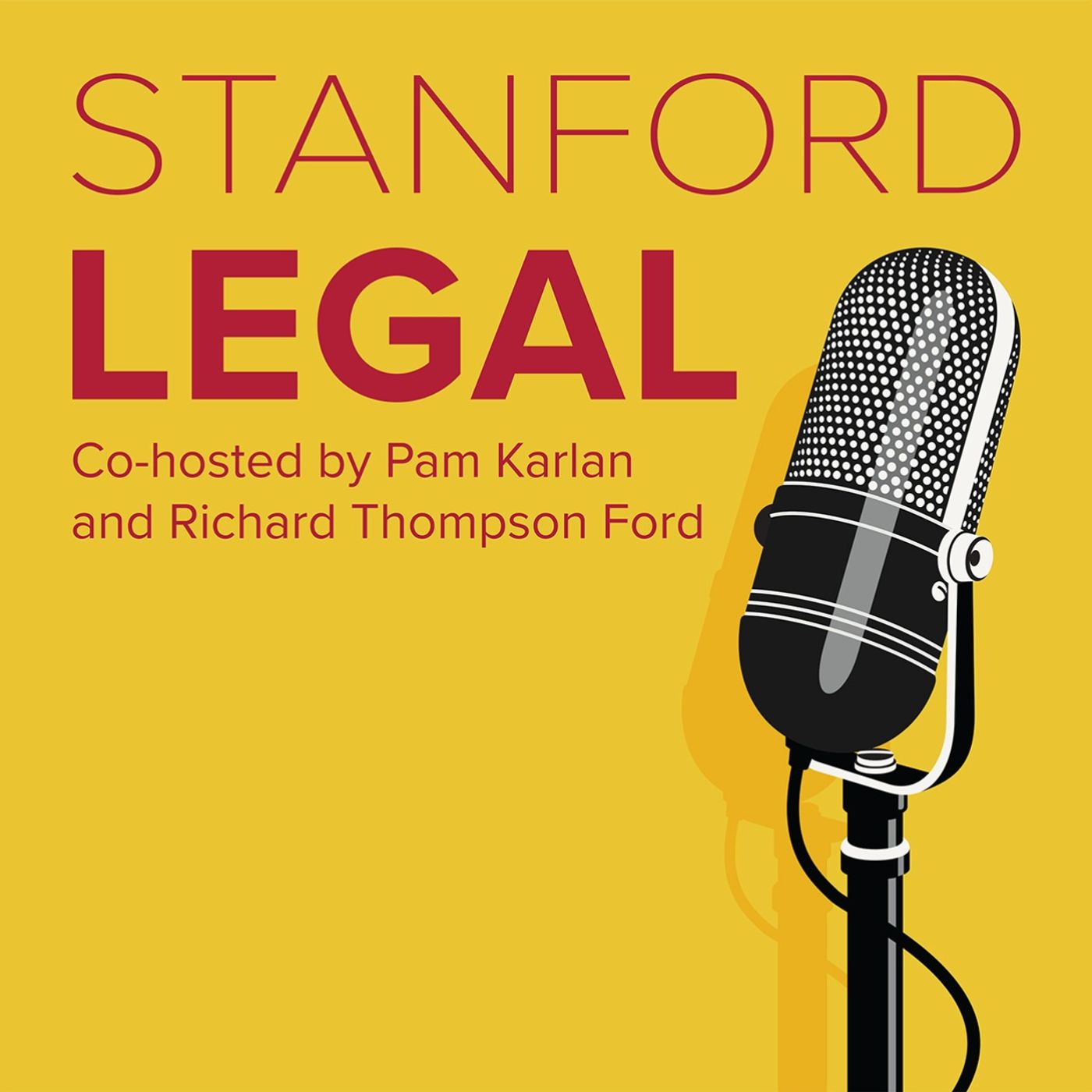 Stanford LegalOverturning Roe and the Future of Abortion in the U.S. with Bernadette MeylerIn an unusual leak from the U.S. Supreme Court, a draft memo shows the Court has decided to overrule Roe v. Wade, the landmark 1973 decision Roe v. Wade, which made abortion legal throughout the U.S. What does this mean for women seeking abortions in the U.S.? Are other rights, like same-sex marriage under threat? And what does this say about the politicization of the Court? Constitutional law expert Bernadette Meyler joins this episode to discuss these questions and more.2022-05-0927 min
Stanford LegalOverturning Roe and the Future of Abortion in the U.S. with Bernadette MeylerIn an unusual leak from the U.S. Supreme Court, a draft memo shows the Court has decided to overrule Roe v. Wade, the landmark 1973 decision Roe v. Wade, which made abortion legal throughout the U.S. What does this mean for women seeking abortions in the U.S.? Are other rights, like same-sex marriage under threat? And what does this say about the politicization of the Court? Constitutional law expert Bernadette Meyler joins this episode to discuss these questions and more.2022-05-0927 min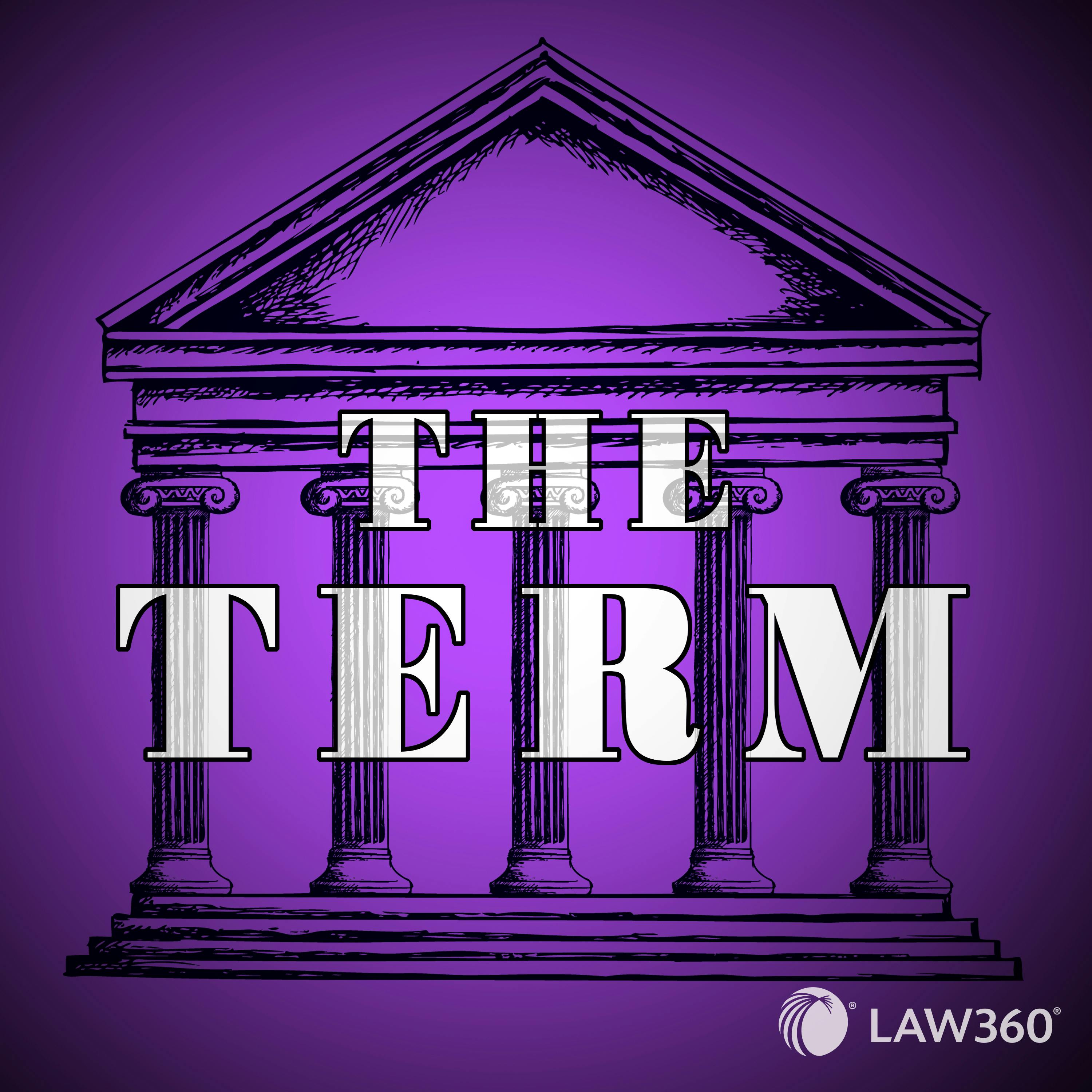 Law360's The Term - News & Analysis on the Supreme CourtHow Alito Wields Abortion History To End RoeJustice Samuel Alito based his draft decision overturning Roe v. Wade on the idea that abortion rights are not "deeply rooted" in the nation's history. On this week's episode of The Term, we welcome constitutional scholar and Stanford Law Professor Bernadette Meyler to discuss how Justice Alito's leaked bombshell opinion deals with a subject of intense historical debate.2022-05-0624 min
Law360's The Term - News & Analysis on the Supreme CourtHow Alito Wields Abortion History To End RoeJustice Samuel Alito based his draft decision overturning Roe v. Wade on the idea that abortion rights are not "deeply rooted" in the nation's history. On this week's episode of The Term, we welcome constitutional scholar and Stanford Law Professor Bernadette Meyler to discuss how Justice Alito's leaked bombshell opinion deals with a subject of intense historical debate.2022-05-0624 min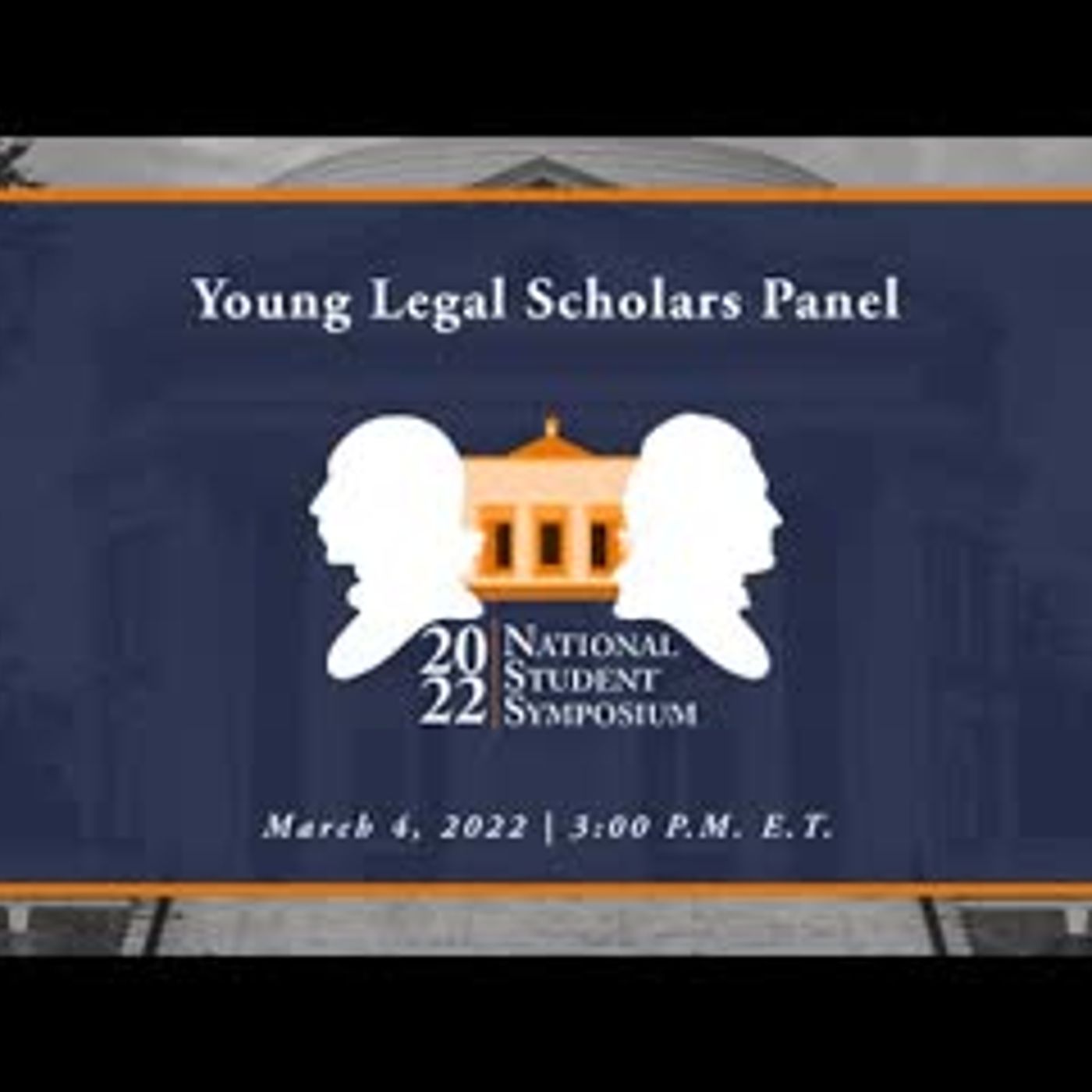 FedSoc EventsPre-Symposium Panel: Young Legal ScholarsBefore the National Student Symposium begins, the Federalist Society's Faculty Division will host a panel of young legal scholars, presenting prize winning papers with comments from more senior scholars in Brown 102 at the University of Virginia School of Law. All early arrivals are welcome to sit in and hear some of the exciting scholarship these young legal scholars are working on before the National Student Symposium. For more information, visit https://fedsoc.org/events/2022-young-legal-scholars-panel. The Federalist Society's Faculty Division hosted a panel of young legal scholars before the National Student Symposium began, presenting prize winning papers with...2022-04-041h 48
FedSoc EventsPre-Symposium Panel: Young Legal ScholarsBefore the National Student Symposium begins, the Federalist Society's Faculty Division will host a panel of young legal scholars, presenting prize winning papers with comments from more senior scholars in Brown 102 at the University of Virginia School of Law. All early arrivals are welcome to sit in and hear some of the exciting scholarship these young legal scholars are working on before the National Student Symposium. For more information, visit https://fedsoc.org/events/2022-young-legal-scholars-panel. The Federalist Society's Faculty Division hosted a panel of young legal scholars before the National Student Symposium began, presenting prize winning papers with...2022-04-041h 48 Live at the National Constitution CenterLiterature and the ConstitutionScholars Bernadette Meyler of Stanford Law School, Alison LaCroix of the University of Chicago Law School and co-editor of the new book, Cannons and Codes: Law, Literature, and America's Wars, and political scientist Catherine Zuckert of the University of Notre Dame and Arizona State University recently joined Jeffrey Rosen for a discussion exploring the ways literature—including the works of Daniel Defoe, James Fenimore Cooper, Jane Austen, Mark Twain, Tracy Smith, and others—has intersected with the Constitution and American democracy from the nation’s founding, to the Civil War, and beyond.Questions or comment...2021-05-1856 min
Live at the National Constitution CenterLiterature and the ConstitutionScholars Bernadette Meyler of Stanford Law School, Alison LaCroix of the University of Chicago Law School and co-editor of the new book, Cannons and Codes: Law, Literature, and America's Wars, and political scientist Catherine Zuckert of the University of Notre Dame and Arizona State University recently joined Jeffrey Rosen for a discussion exploring the ways literature—including the works of Daniel Defoe, James Fenimore Cooper, Jane Austen, Mark Twain, Tracy Smith, and others—has intersected with the Constitution and American democracy from the nation’s founding, to the Civil War, and beyond.Questions or comment...2021-05-1856 min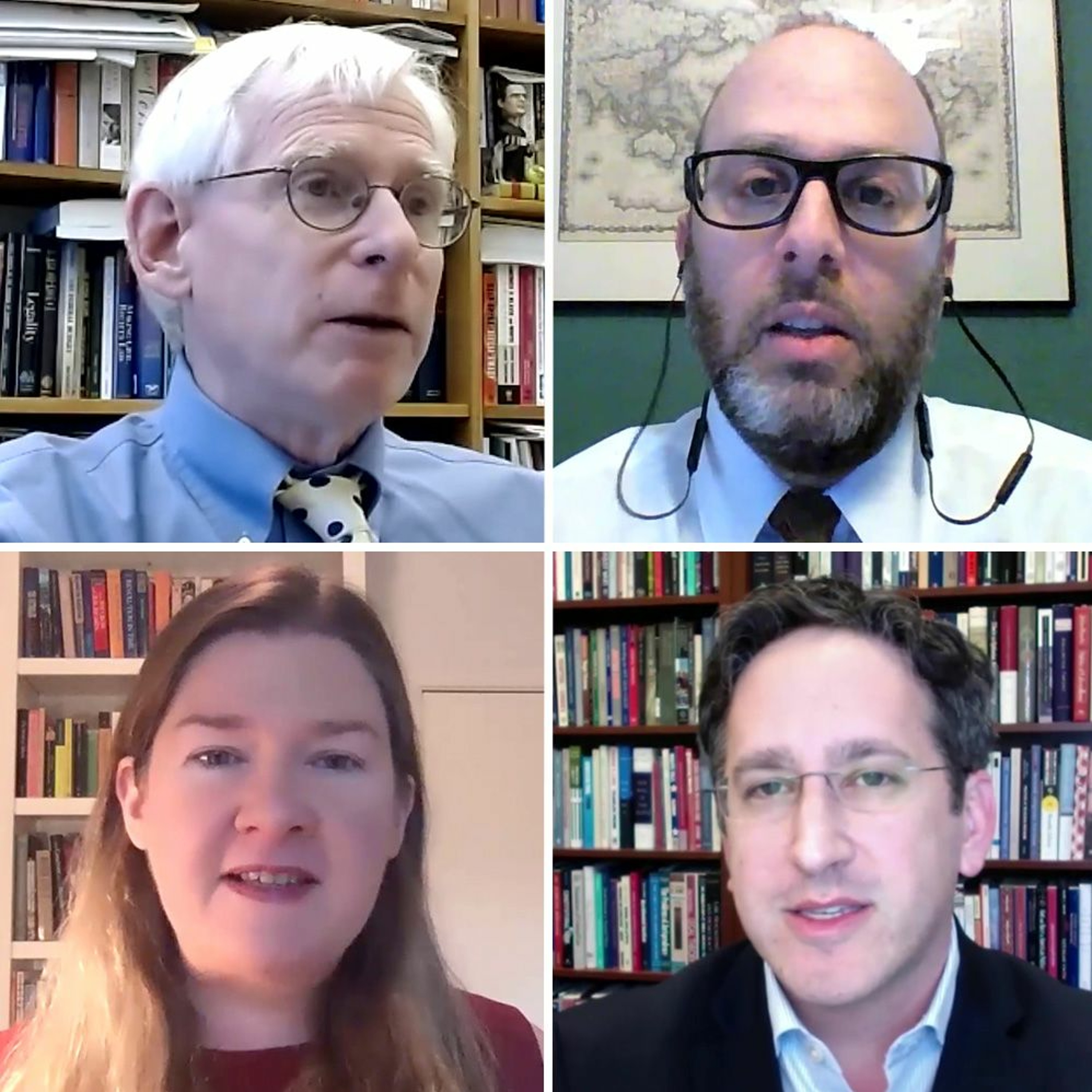 UVA LawCan the President Pardon Himself?As President Donald Trump prepares to leave office, can he give himself a presidential pardon? An expert panel focuses on the constitutional basis of the pardon power, its history and limits, the relationship between pardoning and impeachment, and the legal and political implications of an attempt by the president to self-pardon. The panelists are UVA Law professor John C. Harrison; Michigan State University law professor Brian Kalt; Stanford University professor Bernadette Meyler; and UVA Law professor Micah Schwartzman, director of the Karsh Center for Law and Democracy. (University of Virginia School of Law, Jan. 15, 2021)2021-01-1958 min
UVA LawCan the President Pardon Himself?As President Donald Trump prepares to leave office, can he give himself a presidential pardon? An expert panel focuses on the constitutional basis of the pardon power, its history and limits, the relationship between pardoning and impeachment, and the legal and political implications of an attempt by the president to self-pardon. The panelists are UVA Law professor John C. Harrison; Michigan State University law professor Brian Kalt; Stanford University professor Bernadette Meyler; and UVA Law professor Micah Schwartzman, director of the Karsh Center for Law and Democracy. (University of Virginia School of Law, Jan. 15, 2021)2021-01-1958 min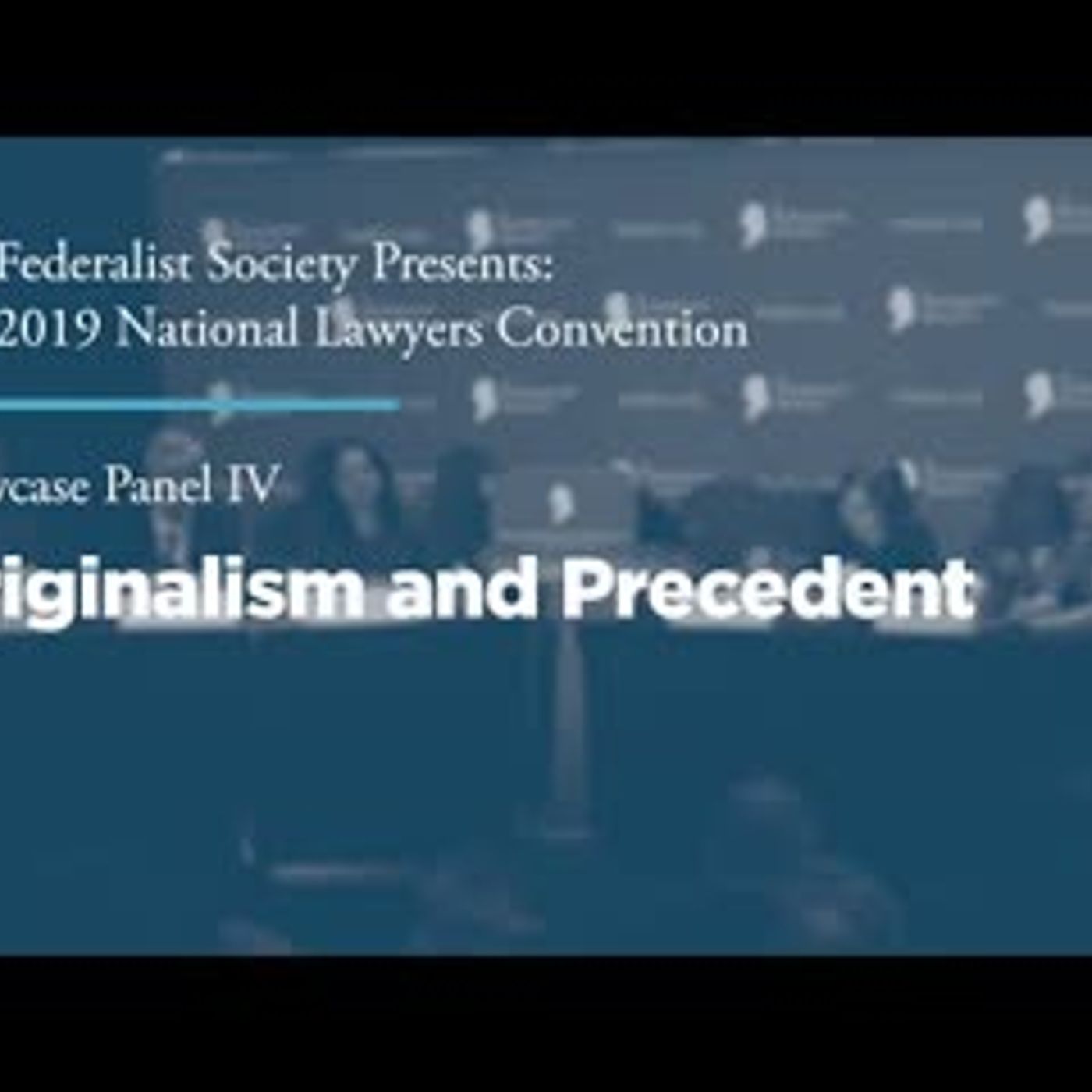 FedSoc EventsShowcase Panel IV: Originalism and PrecedentOn November 16, 2019, the Federalist Society hosted the fourth showcase panel of the 2019 National Lawyers Convention at the Mayflower Hotel in Washington, DC. The panel discussed "Originalism and Precedent."The Supreme Court has decided hundreds of cases, many of which do not seem to square with the original meaning. How much account, if any, should originalism take account of precedent. Are there particular precedent rules that originalism can generate?*******As always, the Federalist Society takes no particular legal or public policy positions. All opinions expressed are those of the speakers.Featuring:Prof. Tara Leigh Grove...2019-12-111h 31
FedSoc EventsShowcase Panel IV: Originalism and PrecedentOn November 16, 2019, the Federalist Society hosted the fourth showcase panel of the 2019 National Lawyers Convention at the Mayflower Hotel in Washington, DC. The panel discussed "Originalism and Precedent."The Supreme Court has decided hundreds of cases, many of which do not seem to square with the original meaning. How much account, if any, should originalism take account of precedent. Are there particular precedent rules that originalism can generate?*******As always, the Federalist Society takes no particular legal or public policy positions. All opinions expressed are those of the speakers.Featuring:Prof. Tara Leigh Grove...2019-12-111h 31 Stanford LegalThe Power of the Presidential Pardon with guest Bernadette MeylerThe U.S. president’s power of pardon dates back to the British monarchy and the “godly” rights of kings, but has the pardon stood the test of time? Listen in as Constitutional Law expert Bernadette Meyler and author of the recent book, “Theaters of Pardoning,” discusses modern-day pardons and the evolution of the law.
Originally aired on SiriusXM on October 12, 2019.
Recorded at Stanford Video.2019-10-1428 min
Stanford LegalThe Power of the Presidential Pardon with guest Bernadette MeylerThe U.S. president’s power of pardon dates back to the British monarchy and the “godly” rights of kings, but has the pardon stood the test of time? Listen in as Constitutional Law expert Bernadette Meyler and author of the recent book, “Theaters of Pardoning,” discusses modern-day pardons and the evolution of the law.
Originally aired on SiriusXM on October 12, 2019.
Recorded at Stanford Video.2019-10-1428 min Federalist Society Event AudioA Conversation on Intellectual Diversity 4-8-2016Stanford Intellectual Diversity ConferenceWhy make a big deal out of intellectual diversity in academia, anyway? What are its advantages? What are its disadvantages? Is it a goal worth pursuing at the expense of others? Dean Larry Kramer and Professor Michael McConnell debate these points and others. This panel was presented at the Stanford Intellectual Diversity Conference on Friday, April 8, 2016, at Stanford Law School.Keynote ConversationDean Larry Kramer, President, The William and Flora Hewlett Foundation; Lecturer in Law and Former Dean, Stanford Law SchoolProf. Michael McConnell, Richard and Frances Mallery Professor and...2016-04-1359 min
Federalist Society Event AudioA Conversation on Intellectual Diversity 4-8-2016Stanford Intellectual Diversity ConferenceWhy make a big deal out of intellectual diversity in academia, anyway? What are its advantages? What are its disadvantages? Is it a goal worth pursuing at the expense of others? Dean Larry Kramer and Professor Michael McConnell debate these points and others. This panel was presented at the Stanford Intellectual Diversity Conference on Friday, April 8, 2016, at Stanford Law School.Keynote ConversationDean Larry Kramer, President, The William and Flora Hewlett Foundation; Lecturer in Law and Former Dean, Stanford Law SchoolProf. Michael McConnell, Richard and Frances Mallery Professor and...2016-04-1359 min FedSoc EventsA Conversation on Intellectual Diversity 4-8-2016Why make a big deal out of intellectual diversity in academia, anyway? What are its advantages? What are its disadvantages? Is it a goal worth pursuing at the expense of others? Dean Larry Kramer and Professor Michael McConnell debate these points and others. -- This panel was presented at the Stanford Intellectual Diversity Conference on Friday, April 8, 2016, at Stanford Law School. -- Featuring: Dean Larry Kramer, President, The William and Flora Hewlett Foundation; Lecturer in Law and Former Dean, Stanford Law School and Prof. Michael McConnell, Richard and Frances Mallery Professor and Director, Constitutional Law Center, Stanford Law School. Moderator...2016-04-131h 23
FedSoc EventsA Conversation on Intellectual Diversity 4-8-2016Why make a big deal out of intellectual diversity in academia, anyway? What are its advantages? What are its disadvantages? Is it a goal worth pursuing at the expense of others? Dean Larry Kramer and Professor Michael McConnell debate these points and others. -- This panel was presented at the Stanford Intellectual Diversity Conference on Friday, April 8, 2016, at Stanford Law School. -- Featuring: Dean Larry Kramer, President, The William and Flora Hewlett Foundation; Lecturer in Law and Former Dean, Stanford Law School and Prof. Michael McConnell, Richard and Frances Mallery Professor and Director, Constitutional Law Center, Stanford Law School. Moderator...2016-04-131h 23 Federalist Society Event AudioA Conversation on Intellectual Diversity 4-8-2016Stanford Intellectual Diversity ConferenceWhy make a big deal out of intellectual diversity in academia, anyway? What are its advantages? What are its disadvantages? Is it a goal worth pursuing at the expense of others? Dean Larry Kramer and Professor Michael McConnell debate these points and others. This panel was presented at the Stanford Intellectual Diversity Conference on Friday, April 8, 2016, at Stanford Law School.Keynote ConversationDean Larry Kramer, President, The William and Flora Hewlett Foundation; Lecturer in Law and Former Dean, Stanford Law SchoolProf. Michael McConnell, Richard and Frances Mallery Professor and...2016-04-1359 min
Federalist Society Event AudioA Conversation on Intellectual Diversity 4-8-2016Stanford Intellectual Diversity ConferenceWhy make a big deal out of intellectual diversity in academia, anyway? What are its advantages? What are its disadvantages? Is it a goal worth pursuing at the expense of others? Dean Larry Kramer and Professor Michael McConnell debate these points and others. This panel was presented at the Stanford Intellectual Diversity Conference on Friday, April 8, 2016, at Stanford Law School.Keynote ConversationDean Larry Kramer, President, The William and Flora Hewlett Foundation; Lecturer in Law and Former Dean, Stanford Law SchoolProf. Michael McConnell, Richard and Frances Mallery Professor and...2016-04-1359 min cmdX anDre Articles "Law of WE "podcastThe 14th Amendment and birthright citizenshipStanford Law School's Bernadette Meyler and Emory University School of Law's William Mayton join the National Constitution Center's Jeffrey Rosen to discuss the 14th Amendment's Citizenship Clause and current debate over the children of immigrants living in the U.S. illegally.2015-08-1948 min
cmdX anDre Articles "Law of WE "podcastThe 14th Amendment and birthright citizenshipStanford Law School's Bernadette Meyler and Emory University School of Law's William Mayton join the National Constitution Center's Jeffrey Rosen to discuss the 14th Amendment's Citizenship Clause and current debate over the children of immigrants living in the U.S. illegally.2015-08-1948 min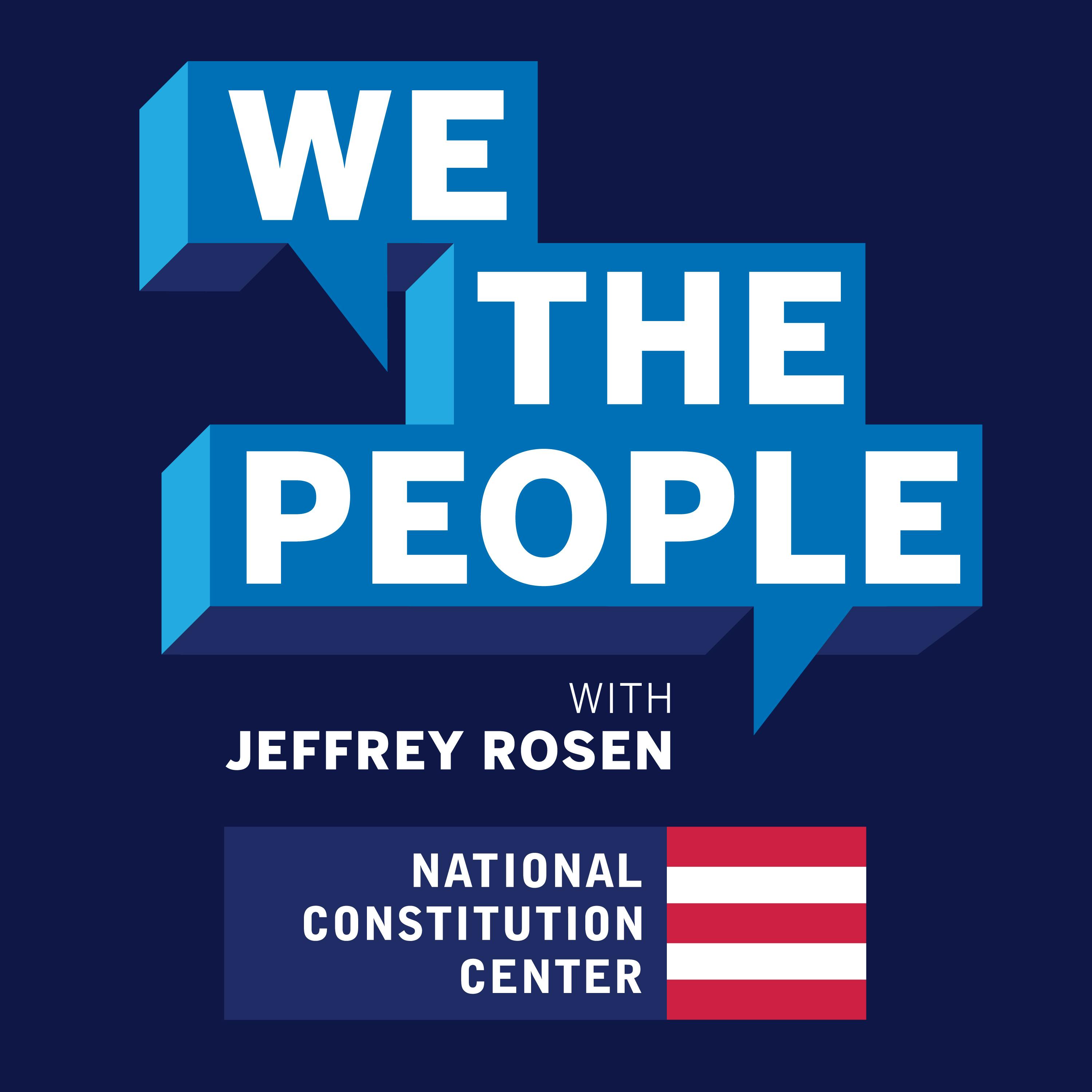 We the PeopleThe 14th Amendment and birthright citizenshipStanford Law School's Bernadette Meyler and Emory University School of Law's William Mayton join the National Constitution Center's Jeffrey Rosen to discuss the 14th Amendment's Citizenship Clause and current debate over the children of immigrants living in the U.S. illegally.2015-08-1947 min
We the PeopleThe 14th Amendment and birthright citizenshipStanford Law School's Bernadette Meyler and Emory University School of Law's William Mayton join the National Constitution Center's Jeffrey Rosen to discuss the 14th Amendment's Citizenship Clause and current debate over the children of immigrants living in the U.S. illegally.2015-08-1947 min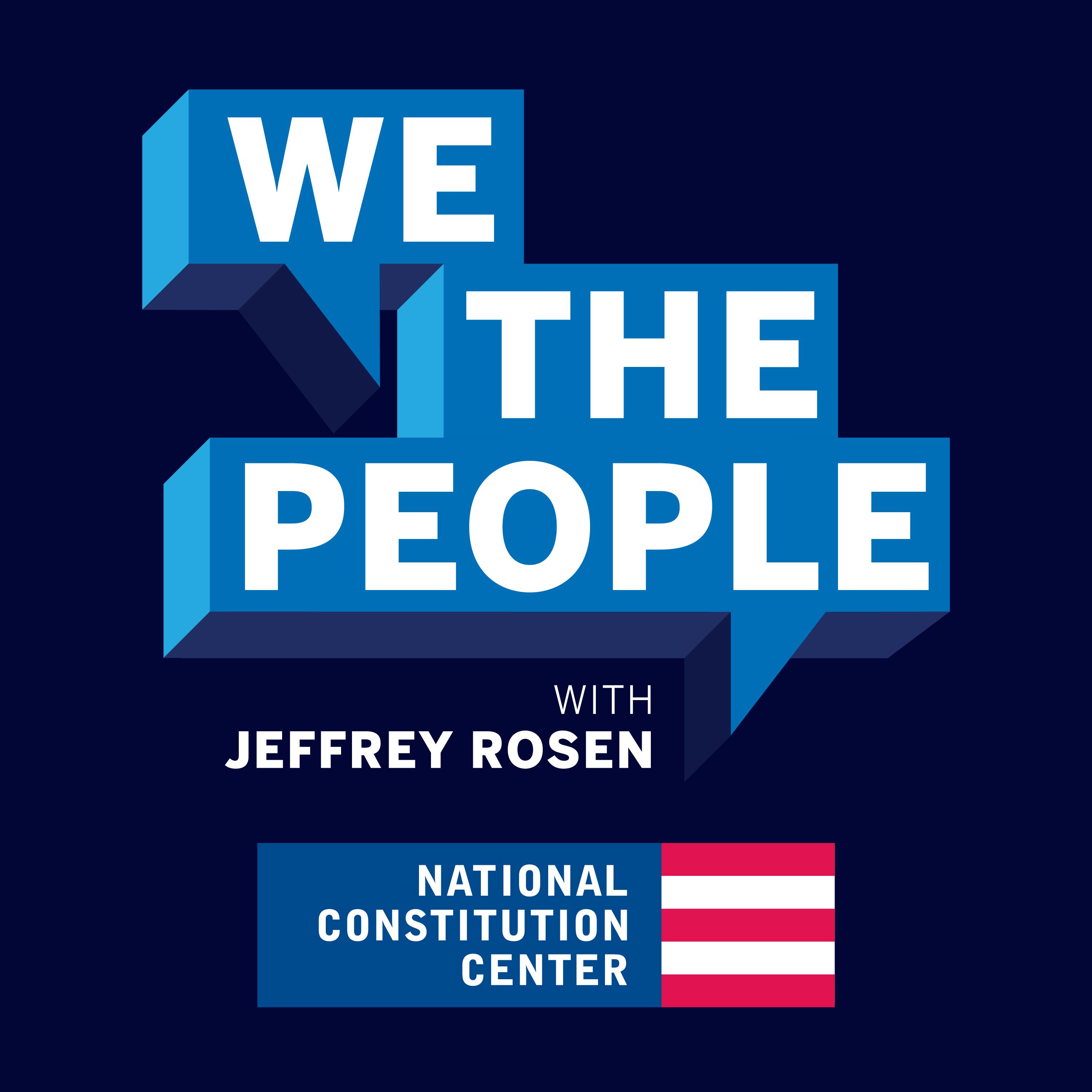 We the PeopleThe 14th Amendment and birthright citizenshipStanford Law School's Bernadette Meyler and Emory University School of Law's William Mayton join the National Constitution Center's Jeffrey Rosen to discuss the 14th Amendment's Citizenship Clause and current debate over the children of immigrants living in the U.S. illegally.2015-08-1947 min
We the PeopleThe 14th Amendment and birthright citizenshipStanford Law School's Bernadette Meyler and Emory University School of Law's William Mayton join the National Constitution Center's Jeffrey Rosen to discuss the 14th Amendment's Citizenship Clause and current debate over the children of immigrants living in the U.S. illegally.2015-08-1947 min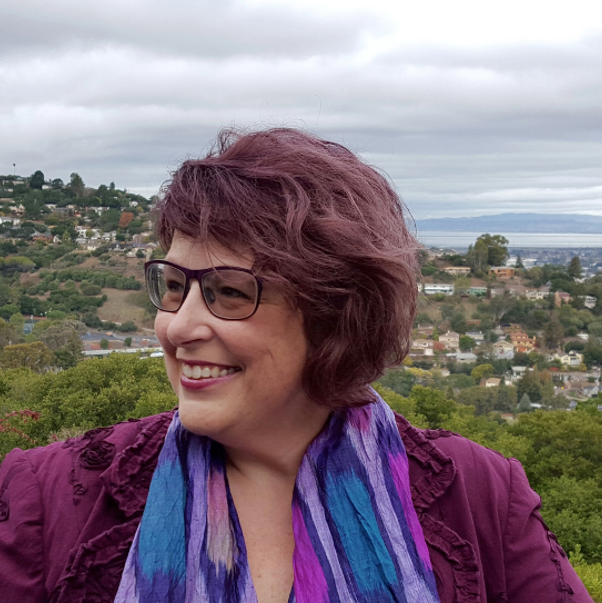 In Deep with Angie Coiro: InterviewsA Look at Religious Freedom LawsShow #80 Hour 2 | Guest: Bernadette Meyler, Professor
of Law and Deane F. Johnson Faculty Scholar at Stanford University | Show
Summary: Indiana Governor Mike Pence knew well enough that his state's RFRA
would be controversial that he held the signing ceremony in private. Even so,
the nationwide reaction rocked the state government and Chamber of Commerce, and
a bill adjustment is promised. Indiana isn't the first nor the last to consider
moves ostensibly designed to protect religious freedoms. But how to define those
freedoms - and how to assure that the bills don't trample the freedoms of others
- is a multi-faceted...2015-04-1201 min
In Deep with Angie Coiro: InterviewsA Look at Religious Freedom LawsShow #80 Hour 2 | Guest: Bernadette Meyler, Professor
of Law and Deane F. Johnson Faculty Scholar at Stanford University | Show
Summary: Indiana Governor Mike Pence knew well enough that his state's RFRA
would be controversial that he held the signing ceremony in private. Even so,
the nationwide reaction rocked the state government and Chamber of Commerce, and
a bill adjustment is promised. Indiana isn't the first nor the last to consider
moves ostensibly designed to protect religious freedoms. But how to define those
freedoms - and how to assure that the bills don't trample the freedoms of others
- is a multi-faceted...2015-04-1201 min Oral ArgumentEpisode 35: MultitudesWe discuss the common law and originalism with law, literature, and history scholar Bernadette Meyler. Some of today’s most intense constitutional controversies revolve around the proper sources of interpretive tools. Some forms of originalism, believing judging is legitimate only if it foregoes political choice and instead adopts the choices made by democratically accountable institutions, attempt to locate the sole meanings that constitutional text, whether “natural born citizen,” “habeas corpus,” or “ex post facto,” had in the common law at the time of its adoption. Bernie’s research reveals that the common law itself, rather than speaking with one voice, exhibited...2014-10-031h 21
Oral ArgumentEpisode 35: MultitudesWe discuss the common law and originalism with law, literature, and history scholar Bernadette Meyler. Some of today’s most intense constitutional controversies revolve around the proper sources of interpretive tools. Some forms of originalism, believing judging is legitimate only if it foregoes political choice and instead adopts the choices made by democratically accountable institutions, attempt to locate the sole meanings that constitutional text, whether “natural born citizen,” “habeas corpus,” or “ex post facto,” had in the common law at the time of its adoption. Bernie’s research reveals that the common law itself, rather than speaking with one voice, exhibited...2014-10-031h 21